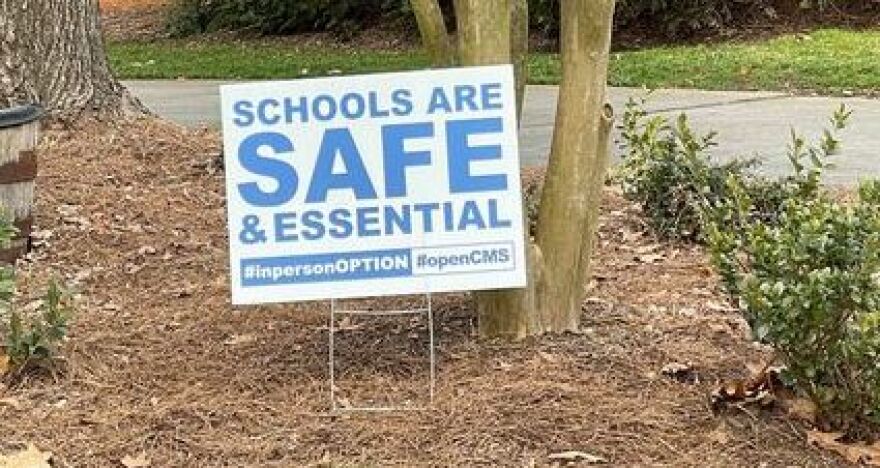North Carolina's leaders Tuesday issued a bipartisan call for all local school districts to open in-person classes.
"It's time to get our children back into the classroom," Democratic Gov. Roy Cooper said at an afternoon news conference.
Cooper says 90 of 115 districts are already offering in-person classes, and he urged the rest to join them — while still offering families the option to have their children learn remotely.
"Students who are ready to return to the classrooms should have that chance," he said.
He was joined by Republican state Superintendent Catherine Truitt, unaffiliated state Board of Education Chair Eric Davis and Health and Human Services Secretary Mandy Cohen, a Democrat. All say the science now shows it's best for students to be in class, as long as safety protocols are in place.
"Remote learning and this pandemic have taken a tremendous toll on thousands and thousands of families," said Truitt, who was elected in November. "This crisis has negatively impacted students' mental health and overall well-being, as well as their academic preparation."
Davis agreed: "Despite the heroic efforts of teachers, principals and family members, too many of our students have not received the academic instruction or the social, emotional or mental health supports that they so desperately need."
The State Rules Aren't Changing
Cooper did not change his current mandate, however. It allows districts and charter schools to hold K-5 classes under Plan A, which permits daily attendance with safety measures. Middle and high schools are limited to Plan B, which requires greater distancing. For most districts, that means splitting students into groups for rotations to allow safe spacing on buses and in classrooms.
The current plan also allows local leaders to opt for the full-remote Plan C if they believe conditions require that, and Cooper did not remove that option. But he said he hopes the strong message sent Tuesday encourages local districts to abandon it.
"I think the way to go is to get our local school boards to take this action, and I believe that many of them, most of them will do so. Hopefully all of them will do so," he said. "It's the right thing to do."
Cohen said greater distancing is still required for older students, but she urged districts to examine their Plan B strategies to provide the maximum in-person class time. In Charlotte-Mecklenburg Schools, for example, the current plan splits middle and high schools into three groups, with each group attending in-person one week while learning from home for two weeks.
This week, Republicans in the North Carolina Senate introduced a bill that would require school districts to offer in-person classes while allowing parents to choose to keep their children learning remotely.
Cooper says he has concerns about that bill, which would change some of the safety protocols.
Local Decisions Are Controversial

CMS plans to reopen classrooms beginning Feb. 15, after several delays based on rising COVID-19 numbers.
The district has been sued by five parents who say in-person classes should have been an option since the start of the year. Over the weekend, families began posting "Schools Are Safe And Essential" yard signs with the hashtag #openCMS. Proponents of reopening say no one is forced to send their kids back to school, but those who want to should have the option.
Almost 60,000 students are enrolled in the district's optional Full Remote Academy, which means they won't return in person this school year. That's more than 40% of the district's total enrollment.
Meanwhile, some teachers and parents argue that CMS should wait to start in-person classes until community spread numbers drop and/or staff can be vaccinated against COVID-19.

Other nearby districts, such as Gaston, Union and Iredell-Statesville, have held in-person classes since schools opened in August.
Copyright 2021 WFAE. For more go to WFAE.org



